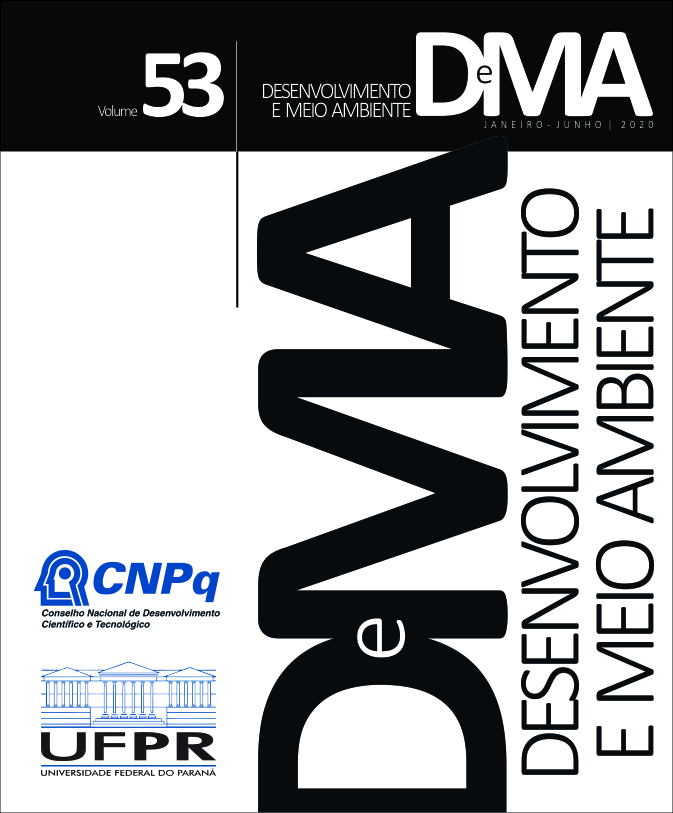Governing complexity and environmental justice: lessons from the water crisis in Metropolitan São Paulo (2013-2015)
DOI:
https://doi.org/10.5380/dma.v53i0.64673Palavras-chave:
water governance, environmental justice, São Paulo, governing complexity, water scarcityResumo
The paper presents a discussion on the water crisis that occurred between 2013 and 2015 in the Metropolitan Region of São Paulo, the lack of integrated natural resources planning, and the reaction of social actors affected by the crisis. The region was affected by an extreme hydrological and climatological event, which was combined with the unsustainable management of water resources. The paper addresses, initially, the dynamics of water governance in the region, and the main aspects related to water availability and climate dependence that caused the water crisis. Then, we present an analysis of the process that led to the water crisis and its main developments, which is based on the follow-up of the different moments of the crisis and dialogues with its relevant stakeholders. The results indicate the relevance of emphasizing issues on matters such as the lack of transparency and highlight the role of societal initiatives. We conclude the paper with a proposition to discuss governance processes that can contribute to the development of more effective initiatives in order to reduce the impact of this visible change in water regimes, strengthen transparent management, and promote a more democratic interaction between social actors and the government.
Downloads
Publicado
Como Citar
Edição
Seção
Licença
Os Direitos Autorais sobre trabalhos publicados nesta revista são do autor, com direitos de primeira publicação para a revista. O conteúdo dos trabalhos publicados é de inteira responsabilidade dos autores. A DMA é um periódico de acesso aberto (open access), e adota a licença Creative Commons Atribuição 4.0 Não Adaptada (CC-BY), desde janeiro de 2023. Portanto, ao serem publicados por esta Revista, os artigos são de livre uso para compartilhar (copiar e redistribuir o material em qualquer suporte ou formato para qualquer fim, mesmo que comercial) e adaptar (remixar, transformar, e criar a partir do material para qualquer fim, mesmo que comercial). É preciso dar o crédito apropriado, prover um link para a licença e indicar se mudanças foram feitas.
Os conteúdos publicados pela DMA do v. 53 de 2020 ao v. 60 de 2022 são protegidos pela licença Creative Commons Atribuição – Não Comercial – Sem Derivações 4.0 Internacional.
A DMA é uma revista de acesso aberto desde a sua criação, entretanto, do v.1 de 2000 ao v. 52 de 2019, o periódico não adotava uma licença Creative Commons e, portanto, o tipo de licença não é indicado na página inicial dos artigos.




